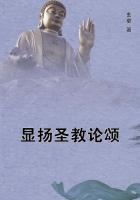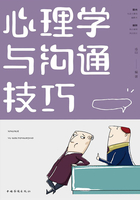A thing had happened to the man--a thing that, if you are eligible, you must pray may pass you by. He had become enveloped in the Indian Summer of the Soul.
Dry Valley had had no youth. Even his childhood had been one of dignity and seriousness. At six he had viewed the frivolous gambols of the lambs on his father's ranch with silent disapproval. His life as a young man had been wasted. The divine fires and impulses, the glorious exaltations and despairs, the glow and enchantment of youth had passed above his head. Never a thrill of Romeo had he known; he was but a melancholy Jaques of the forest with a ruder philosophy, lacking the bitter-sweet flavour of experience that tempered the veteran years of the rugged ranger of Arden. And now in his sere and yellow leaf one scornful look from the eyes of Panchita O'Brien had flooded the autumnal landscape with a tardy and delusive summer heat.
But a sheepman is a hardy animal. Dry Valley Johnson had weathered too many northers to turn his back on a late summer, spiritual or real.
Old? He would show them.
By the next mail went an order to San Antonio for an outfit of the latest clothes, colours and styles and prices no object. The next day went the recipe for the hair restorer clipped from a newspaper; for Dry Valley's sunburned auburn hair was beginning to turn silvery above his ears.
Dry Valley kept indoors closely for a week except for frequent sallies after youthful strawberry snatchers. Then, a few days later, he suddenly emerged brilliantly radiant in the hectic glow of his belated midsummer madness.
A jay-bird-blue tennis suit covered him outwardly, almost as far as his wrists and ankles. His shirt was ox-blood; his collar winged and tall; his necktie a floating oriflamme; his shoes a venomous bright tan, pointed and shaped on penitential lasts. A little flat straw hat with a striped band desecrated his weather-beaten head. Lemon-coloured kid gloves protected his oak-tough hands from the benignant May sunshine. This sad and optic-smiting creature teetered out of its den, smiling foolishly and smoothing its gloves for men and angels to see.
To such a pass had Dry Valley Johnson been brought by Cupid, who always shoots game that is out of season with an arrow from the quiver of Momus. Reconstructing mythology, he had risen, a prismatic macaw, from the ashes of the grey-brown phoenix that had folded its tired wings to roost under the trees of Santa Rosa.
Dry Valley paused in the street to allow Santa Rosans within sight of him to be stunned; and then deliberately and slowly, as his shoes required, entered Mrs. O'Brien's gate.
Not until the eleven months' drought did Santa Rosa cease talking about Dry Valley Johnson's courtship of Panchita O'Brien. It was an unclassifiable procedure; something like a combination of cake-walking, deaf-and-dumb oratory, postage stamp flirtation and parlour charades. It lasted two weeks and then came to a sudden end.
Of course Mrs. O'Brien favoured the match as soon as Dry Valley's intentions were disclosed. Being the mother of a woman child, and therefore a charter member of the Ancient Order of the Rat-trap, she joyfully decked out Panchita for the sacrifice. The girl was temporarily dazzled by having her dresses lengthened and her hair piled up on her head, and came near forgetting that she was only a slice of cheese. It was nice, too, to have as good a match as Mr.
Johnson paying you attentions and to see the other girls fluttering the curtains at their windows to see you go by with him.
Dry Valley bought a buggy with yellow wheels and a fine trotter in San Antonio. Every day he drove out with Panchita. He was never seen to speak to her when they were walking or driving. The consciousness of his clothes kept his mind busy; the knowledge that he could say nothing of interest kept him dumb; the feeling that Panchita was there kept him happy.
He took her to parties and dances, and to church. He tried--oh, no man ever tried so hard to be young as Dry Valley did. He could not dance;but he invented a smile which he wore on these joyous occasions, a smile that, in him, was as great a concession to mirth and gaiety as turning hand-springs would be in another. He began to seek the company of the young men in the town--even of the boys. They accepted him as a decided damper, for his attempts at sportiveness were so forced that they might as well have essayed their games in a cathedral. Neither he nor any other could estimate what progress he had made with Panchita.
The end came suddenly in one day, as often disappears the false afterglow before a November sky and wind.
Dry Valley was to call for the girl one afternoon at six for a walk.















